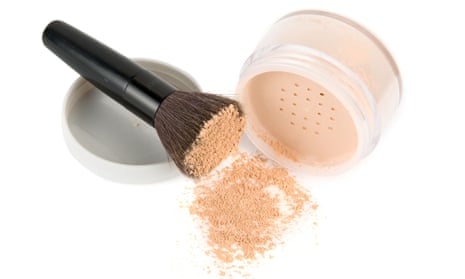In an unlikely partnership, rivals Walmart and Target have joined together, working with suppliers “to improve sustainability performance in the personal care and beauty industry”.
Their first event, the day-long Beauty and Personal Care Products Sustainability Summit, will be held on 4 September in Chicago. It’s being organized by Forum for the Future, a UK-based NGO with an outpost in New York.
Up until now, Walmart, the largest US retailer, and Target, the fourth-ranked retailer (according to the National Retail Federation), have taken divergent paths on sustainability. Why are the two companies now joining forces around the sustainability of soap, toothpaste, hair care products, shaving cream and cosmetics?
That’s hard to know for sure. The executives steering the project – Rob Kaplan, director of product sustainability at Walmart, and Kate Heiny, who leads Target’s sustainable work – declined to be interviewed. Helen Clarkson, who leads Forum’s work in the US, was willing to talk, but she was understandably cautious, offering mostly generalities.
“To create real change, we need big companies to work together,” Clarkson said. OK, but to what end? “What we want as a outcome is to share perspectives, map out the value chain and start to look for a set of actionable opportunities.” Which tells you … not much.
By email, Erin Conroy, a Target spokeswoman, offered more blather: “The goal is to identify sustainability issues within the beauty and personal care value chain, explore common concerns, and determine areas where stakeholders can collaborate to bring better options to consumers.”
The planners are close-lipped about the summit’s 50-100 participants, although they mentioned that many will be drawn from the retail sector. The guest list includes retail competitors – presumably including CVS and Walgreen’s – as well as consumer products companies, such as Procter & Gamble and Johnson & Johnson; next-tier suppliers, including packaging and chemical companies; and a handful of NGOs.
The meeting will be closed – a disappointment to Janet Nudelman, director of program and policy at the Breast Cancer Fund, which helped launch the hard-hitting Campaign for Safe Cosmetics a decade ago. “If it’s about addressing consumers’ concerns about the safety of these products, one of our concerns is about the secrecy,” she said.
Consumers can’t be sure their voices will be heard if the meeting is closed, she went on: “Will NGOs be invited? We’re not the enemy. We started the conversation. We’re the groups that put the safe cosmetics issue on the map.”
Along with activists, companies that market themselves as natural – including Aveda and Burt’s Bees – have surely had an impact on the sustainability conversation. But, regardless of who gets the credit, brands and retailers have already responded to pressures to make personal care and beauty products safer and more sustainable.
In 2012, Johnson & Johnson said it would eliminate triclosan and a preservative called quarternium-15, which releases small amounts of formaldehyde, from its baby care and beauty products. Last year, Procter & Gamble – whose brands include CoverGirl, Ivory and Crest – said it would eliminate triclosan and diethyl phthalate (DEP) from its products. Meanwhile, Colgate has reduced packaging.
Until now, Target and Walmart have moved down separate sustainability tracks. Walmart started the Sustainability Consortium, a group of more than 90 companies that measures product sustainability. It has also identified ten “high-priority” chemicals that it will ask suppliers to reduce or eliminate. Unfortunately, however, the company has refused to name them.
For its part, Target declined to join the Sustainability Consortium. It has, however, developed sustainability guidelines for its buyers by working with Good Guide, a unit of Underwriters Laboratories (UL).
But Target and Walmart’s Sustainability Summit partnership, while unusual, is not unprecedented. The companies came together last year as founding members of the Alliance for Bangladesh Worker Safety, which aims to improve working conditions in the garment industry in Bangladesh.
Getting two rivals to cooperate around sustainability is “definitely a challenge,” Clarkson told me. “It comes to understanding where they do and don’t compete,” she said. No one, for example, wants to compete around how many chemicals end up in rivers when beauty care products are manufactured in China.
It may be – and this definitely falls in the category of informed speculation – that Walmart and Target have come to realize that they are not as powerful as they want to be when dealing with big consumer brands and their suppliers in the chemical and fragrance industries.
The secrecy around ingredients in beauty and personal care products, along with the complexity of chemical formulations, creates information asymmetries. The brands and their suppliers know a lot more about product formulations than the buyers at Walmart and Target. They often tell critics that there’s no readily available substitute for a “chemical of concern.” And they are unwilling to share information about whether they are researching or developing safer chemicals.
An industry insider told me: “There’s so much that’s hidden in these supply chains that even Target and Walmart don’t know what goes into everything on their shelves.”
The September summit won’t just focus on the safety of chemicals, of course. It will also look at the sourcing of ingredients and at packaging, where there’s lots of room for improvement. It should prove to be an interesting day.
The supply chain hub is sponsored by the Fairtrade Foundation. All content is editorially independent except for pieces labelled advertisement feature. Find out more here.

Comments (…)
Sign in or create your Guardian account to join the discussion